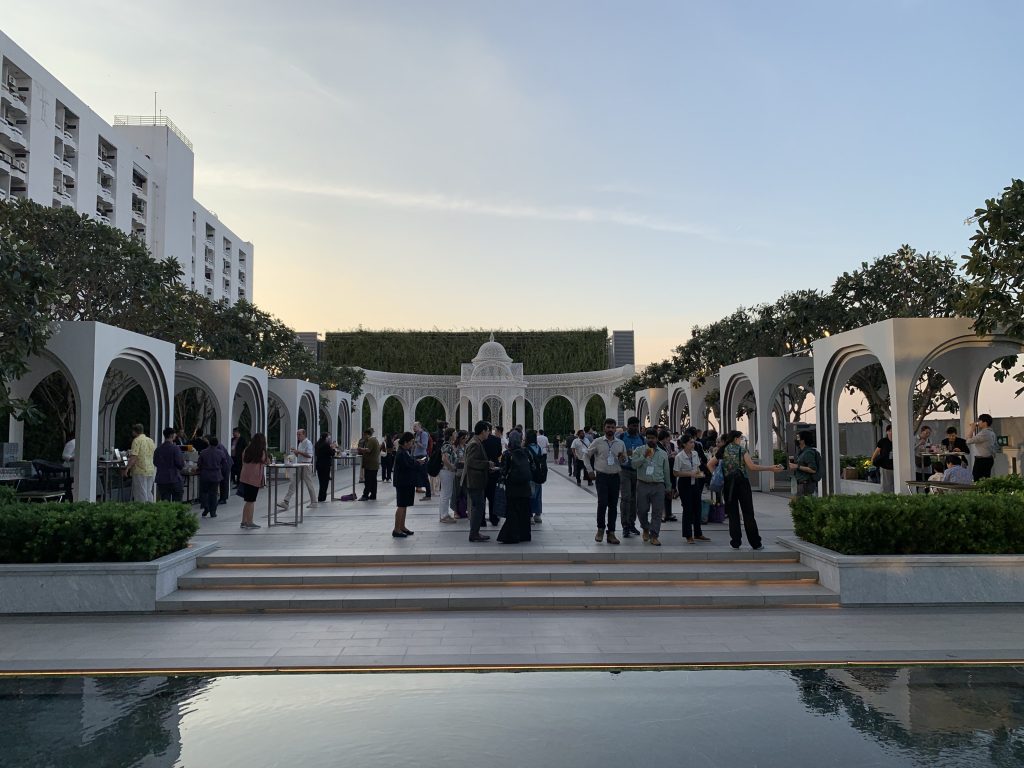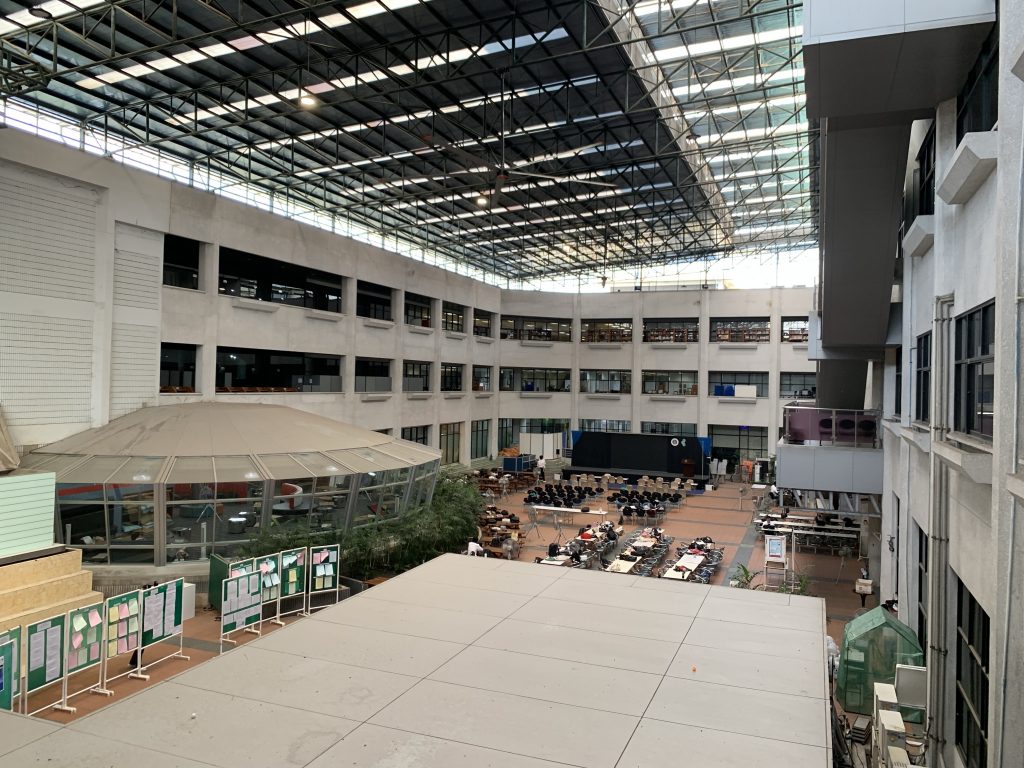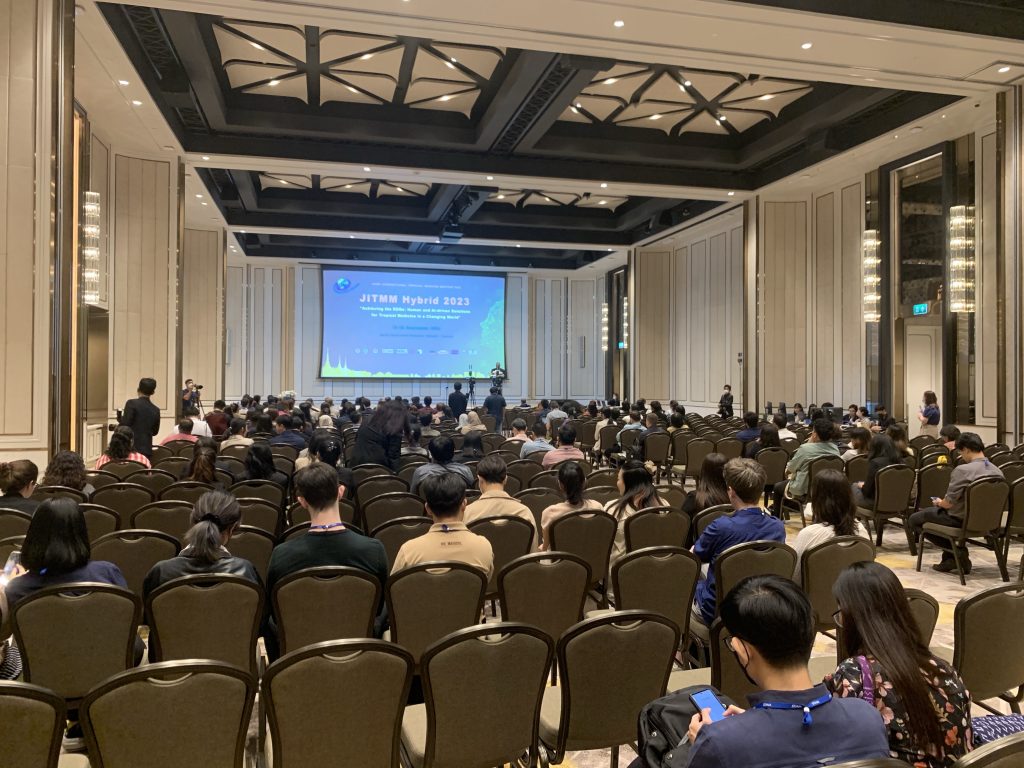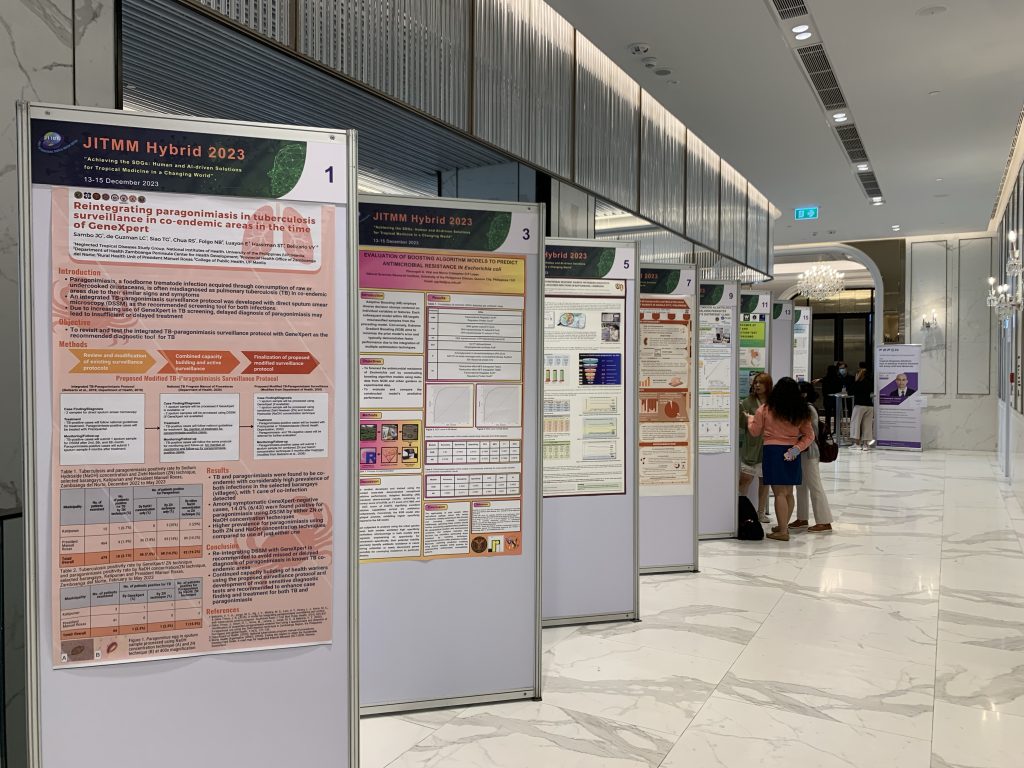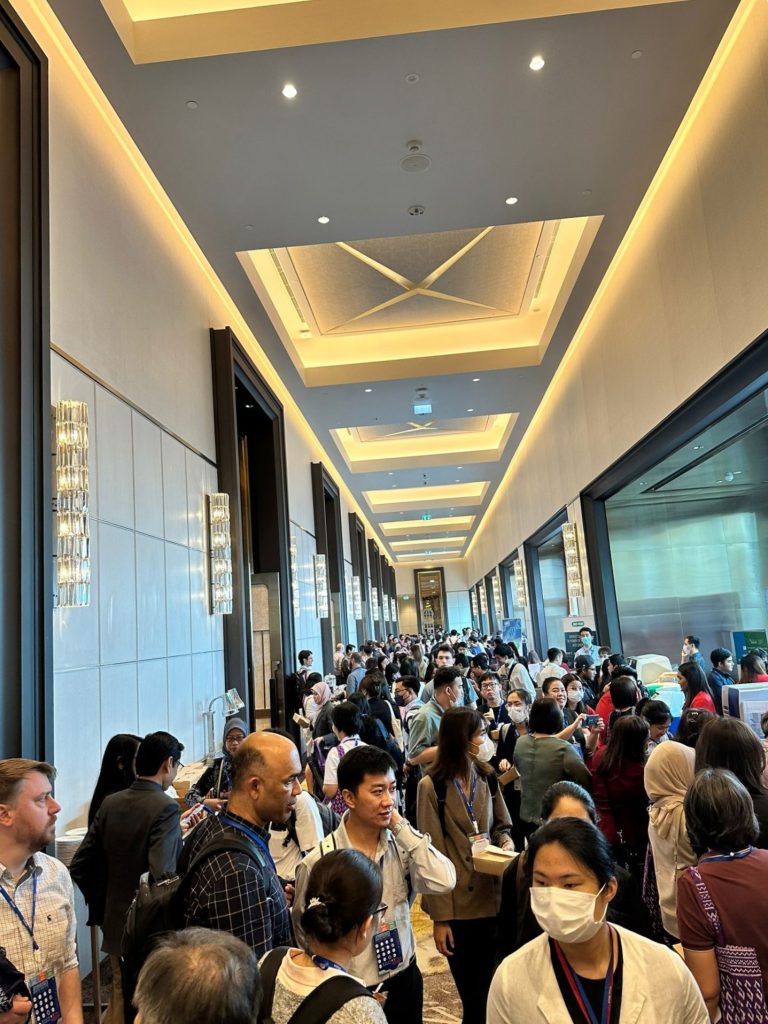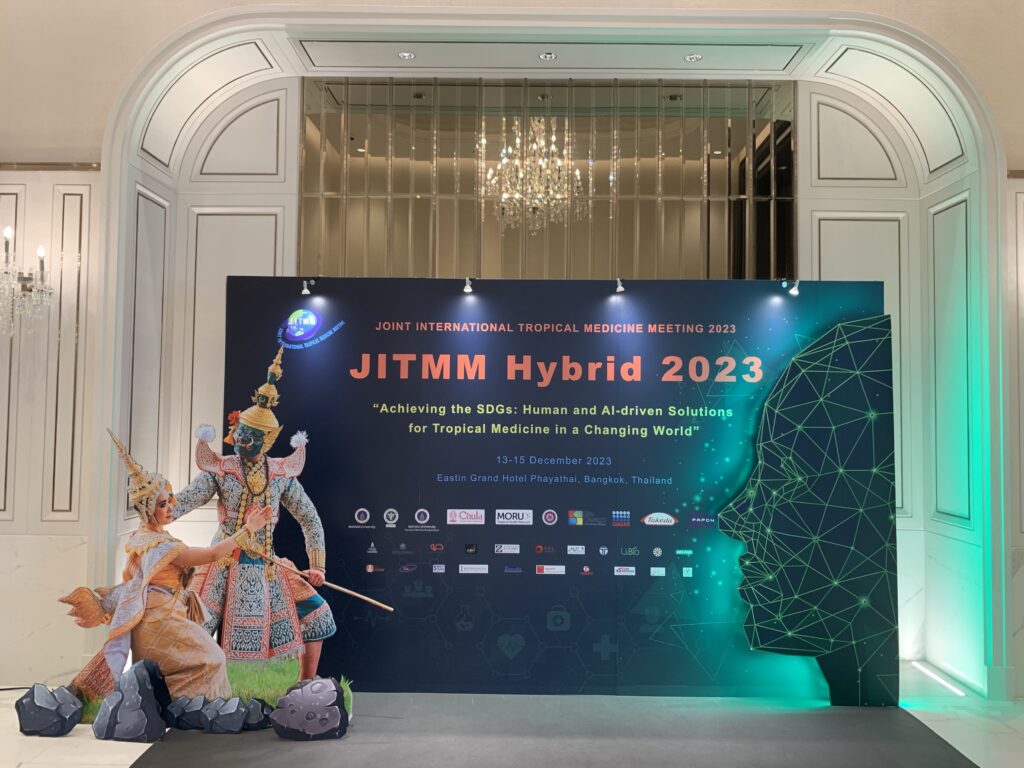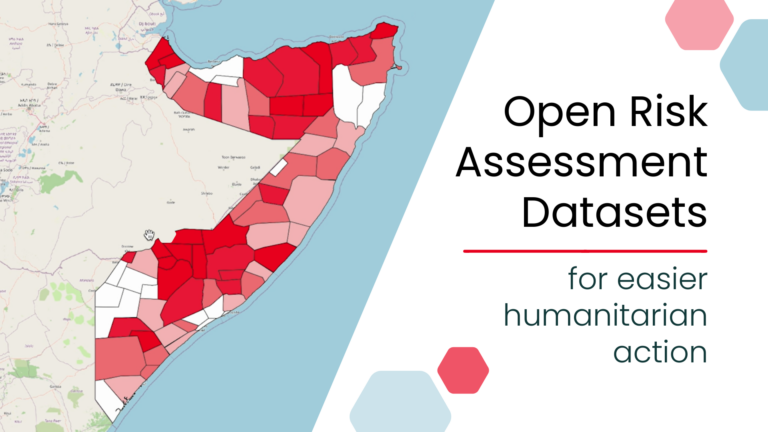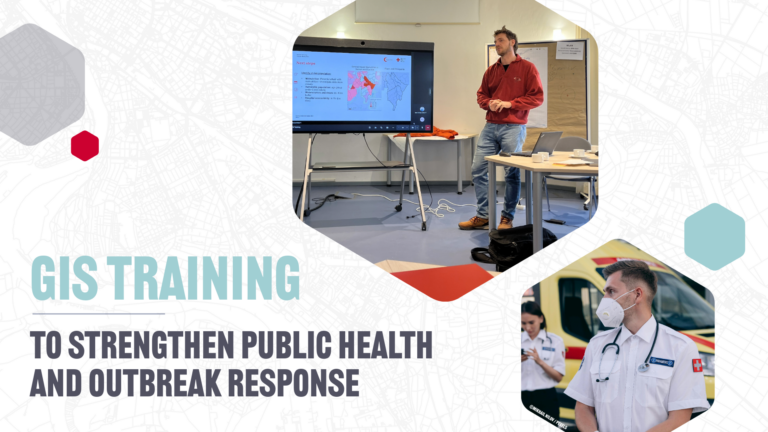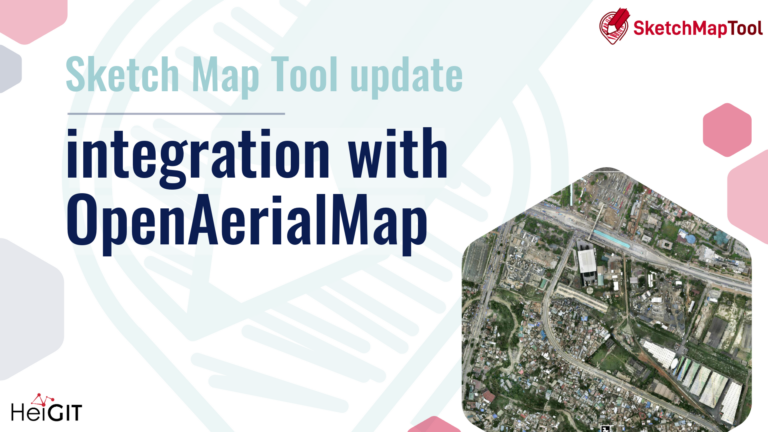GIScience member and PhD candidate Steffen Knoblauch was invited as a speaker at the Joint Internationl Tropical Medicine Meeting (JITMM) 2023. The conference’s focal topic was “Achieving the SDGs: Human and AI-driven Solutions for Tropical Medicine in a Changing World” and it was hosted by the faculaty of Tropical Medicine, Mahidol University and co-organized by the Mahidol Oxford Tropical Medicine Research Unit (MORU). Taking place at the Eastin Grand Hotel Phayathai in Bangkok, Thailand from December 13-15, the JITMM hosted around 1500 international participants, most of whom are experts on malaria and dengue fever. The various oral and poster presentations at the conference covered a wide range of topics such as diseases (viral, bacterial, vector-borne, etc.), vaccines and clinical studies, as well as healthcare and technological innovations, artificial intelligence and ethics.
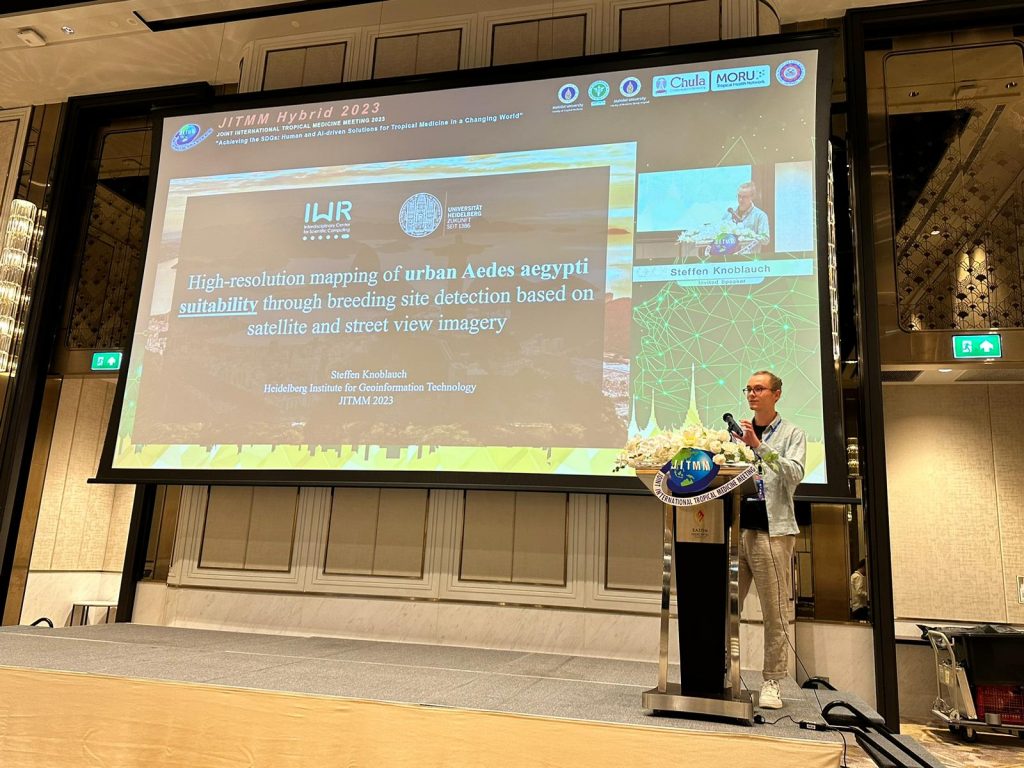
Among all sessions at JITMM, two symposium sessions were hosted by the ICT faculty of Mahidol University – collaboarators of GIScience in the geoEpi project. These sessions focused on novel data-driven technologies for tropical medicine. In the first of these sessions, “IT-driven Disease Surveillance and Predictive Models”, Steffen gave his talk on “High Resolution Mapping of Urban Aedes Aegypti Immature Abundance Through Breeding Site Detection Based on Satellite and Street View Imagery“. He spoke about the important role of big spatial data and novel object detection models in targeted vector control and the prevention of mosquito-borne diseases, such as dengue fever, Zika and Chikungunya. You can find more details on his talk in the screenshot of the conference program below. You can find more information here about Steffen’s related work in the city of Rio de Janeiro, Brazil.
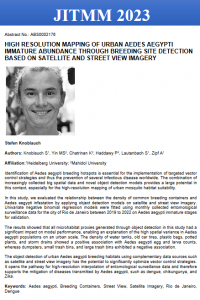
Click here to download the full program
Other interesting talks during this session were “Climate-based Malaria Modelling for Vector Surveillance and Control in Ghana”, “Web and Mobile Application to Assist Dengue Investigation” which introduced a project aiming to develop a mobile application and a web dashboard to support dengue case investigation, and “Internet of Things for Monitoring the Human Exposome” exploring state-of-the-art technology to monitor the exposome of people in urban and rural environments and how this monitoring can contribute to a better understanding and better management of our environment. During the second session, titled “Smart Mosquito Detection and Control: Application of Machine Learning Techniques”, other recent research results were presented, such as “Bio-Acoustic IoT Sensors for Mosquito Surveillance “. Here, hardware and deep-learning based algorithms for smart mosquito traps were developed to automatically detect and classify mosquito species on a daily basis using mosquito wing beat sound. In combination with the research results from Steffen, this could revolutionize current labour-intensive mosquito surveillance techniques and potentially improve disease control in the future.
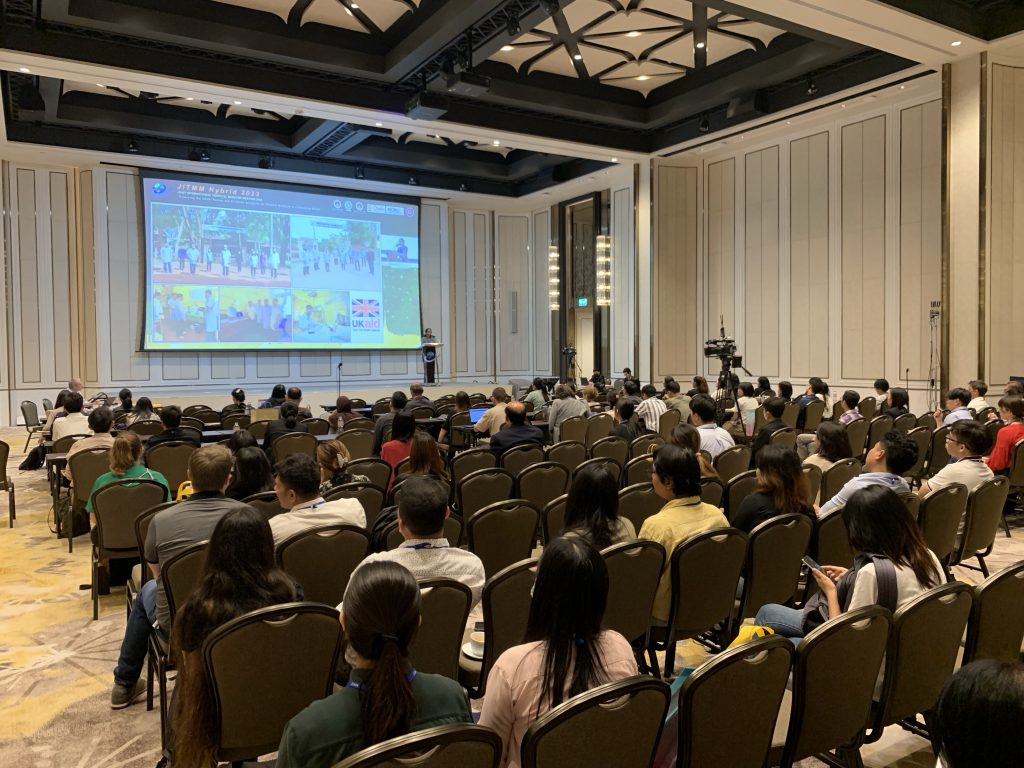
Apart from his conference talk, Steffen also visited the ICT Faculty Mahidol where he worked on current research projects with his collaborators Dr. Myat Su Yin and Prof. Dr. Peter Haddawy, both of whom were chairpersons at JTIMM. One of the highlights of this conference and research visit was the great feedback on Steffen’s research on applying digital geodata and methods to tackle global public health challenges. During the conference, a further network in this research field was built. We thank our collaborators at Mahidol University for this great opportunity and invitation as well as the Heidelberg Graduate School of Mathematical and Computational Methods for the Sciences (HGS MathComp) for funding.
More impressions from JITMM:
